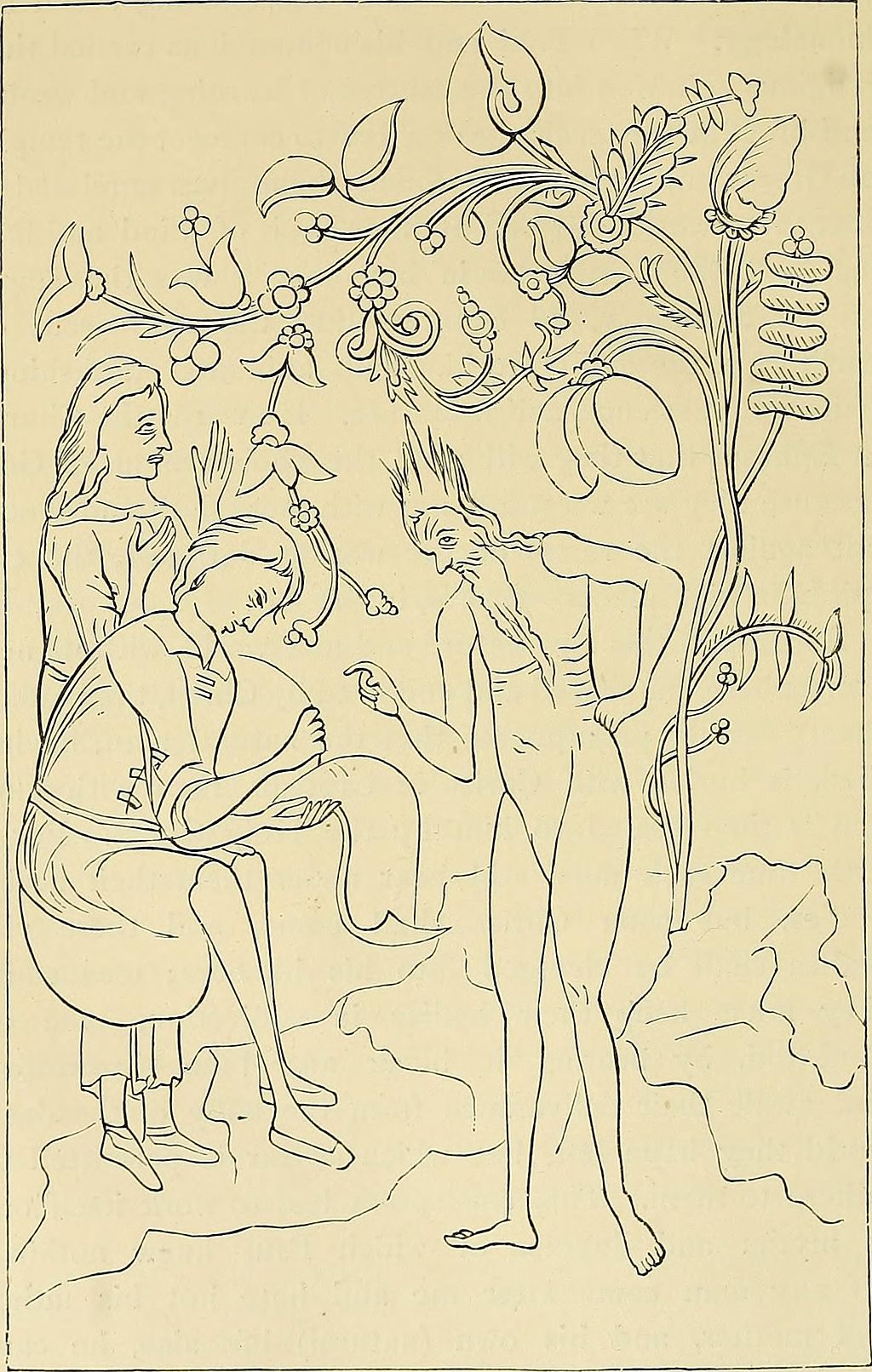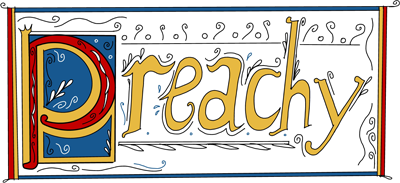
Letting that Burden Go
There is one very short spectrum when it comes to the way people view misfortune. There are those who look at it as mere bad luck, and there are those who see it as a repercussion for the wrongs they may have done in the past. And there is a third group: those who attribute it to the work of Satan. This group is where my parents belong.
As a devout Christian, my father not only believes that misfortunes are the works of the devil, he also believes that God allows it to happen to people for a reason and that He alone is able to relieve them of their affliction. That was how he saw my brother’s schizophrenic condition; he dismissed it as a test from God and preferred to take him to church for prayers than to the hospital for medical care.
But that wasn’t always his way of reasoning. Before my brother’s diagnosis, when my father really hadn’t experienced ill luck of this magnitude, he was more or less a fair-weather Christian. But there has been a clear distinction between his mode of reasoning before the diagnosis and his mode of reasoning since the diagnosis. That is what adversity does to you: It makes you sit back and deeply introspect. It makes you ask certain questions, questions of which the answers are desperately needed – and so you become vulnerable, willing to believe and accept anything that sounds remotely hopeful. And that hope came in the form of the church; they convinced him that God was his only refuge and made him see reason to draw closer to Him.
My father didn’t just draw closer to God, he embraced Him tightly and wouldn’t let go. It was as though he had been completely immersed in a bathtub filled with liquid Holy Spirit. After retirement from the Civil Service, he made the church his second home. He even made repeated attempts to turn our family home into a mini-church by holding church meetings at least once a week, until my mother had enough of it and demanded a stop. She was just about OK with the two-hour devotion we were having every morning.
While my father was handling the condition of my brother with a newfound calmness, borne out of his belief that God could just one day snap His fingers and everything would become normal again, my mother, on the other hand, wasn’t so patient. In fact, she found it hard to go with the doctor’s diagnosis. For her, schizophrenia was just a fancier name for demonic possession. And typically, she had a handful of names of people she thought could be responsible for it. This is a thing in Nigeria and Africa in general, a belief that some evildoer somewhere – usually bad relatives and mostly out of envy or spite – must have invoked some kind of spirit into the sufferer. This suspicion goes on until the suspect has passed on, which then allows for a narrowing down of the list.
While my father remained unwavering in his faith and therefore committed to his church, my mother jumped from one church to the other, from one spiritual home to the other, seeking salvation for my brother. When it became increasingly clear that salvation wasn’t forthcoming in one, she simply moved on to the next.
As you would expect, this irritated my father enormously. He was so certain that my mother’s approach was one of the reasons God was delaying on His promise to heal my brother. I use the word “promise” not in the sense that God and my father had had some kind of conversation concerning this, but rather in the sense that it is made known in the words which are inscribed in His holy book, the Bible, the very words which my father draws all his strength from.
My father’s dogged practice of Christianity sometimes verged on unreasonableness, but he would always tell us that the ways of God seem like foolishness to the mere mortal. Whenever my brother was having one of his periodic schizophrenic episodes, most likely because he skipped his drugs, we were presented with two options by my father: either to take him to the hospital so he could receive a couple doses of injections or take him to church so he could receive a couple bouts of prayers. My father would opt for the latter in a swift solitary decision, and this often annoyed us because my brother usually wound up in the hospital anyway.
My father would always complain about our lack of enthusiasm in our dealings with God. He was unsatisfied with our usual Sunday-Sunday practice. He wanted us in the house of God at least something close to the four times a week he himself went. He wanted us to join the choir, and the evangelism unit, and the prayer warriors, and just about every department that existed in the church. To him, that was the least we needed to do on our part in order for God to heal our brother.
My mom would always complain about how my dad would preach and preach and yet have nothing to show for it, about how the pastors in the church he spent so much time in were not able to heal my brother. My dad would counter by saying that God is the one who heals, not the pastors, and that we should patiently wait on Him. This was always his response, but my mother wanted more. She didn’t just want him to quote a portion of the Bible that says everything would be OK, she wanted to see that everything was actually OK. So once she found out about a certain spiritual home, she didn’t hesitate to tell him about it. “The spiritualists say they’ll heal him with prayers and natural herbs,” she’d said, to try to persuade my dad to give her his consent to take my brother there. He granted her wish with his usual skepticism. My brother only lasted two weeks with the spiritualists. My mother got a call from them telling her he died of a seizure.
The death left the entire family, save for my father, in one of those many moments in which we questioned the existence of God. We became too lazy to wake up in the morning to pray and uninterested in attending church services. It got us asking a lot of questions, such as: If God had truly promised my father that He’d heal my brother, why then did He allow him to die in the hands of the spiritualists? All the prophecies and declarations by various “men of God,” all the promises and assurances that it would end in joy, left us nothing other than a corpse and dashed hopes.
As for my father, his excuse was that my mother had undone whatever it is that God was trying to do in the life of my brother; therefore, the death of my brother did not move him one inch away from God. Honestly, it did quite the opposite. He became more fervent in his worship of God, eventually becoming a pastor in his church. At the funeral, while tears and nasal discharge ran down my mother’s face, my father showed no outward signs of bereavement. You could see the cheerfulness on his face as he listened to the preacher preach, a cheerfulness which clearly implied that he had accepted God’s decision in good faith. When it was time for the eulogies, he said that had it not been for his son’s condition, he probably would never have found God. “My son’s condition led me to Christ,” he repeatedly said. It got me wondering whether there was no other way God could have brought him closer to Him. “For almost 20 years now I’ve been a born-again. I have not tasted alcohol in almost 20 years.” He took his time to enumerate his achievements as a born-again Christian over the years.
Looking back at all of those years, what I find most remarkable is the relative peace of mind my father found once he gave his life to Christ. There was a clear difference between the way he handled the whole situation and the way the rest of the family, especially my mother, handled it. Although I faulted him at times for his unreasonableness, I never faulted his disposition in the face of adversity. It brings to my mind the passage in the Bible that reads: Come on to me (Jesus), all ye that labour and are heavy laden, and I will give you rest. Take my yoke upon you, and learn of me; for I am meek and lowly in heart: and ye shall find rest unto your souls. For my yoke is easy, and my burden is light. (Matthew 11:28-30)
My mother wanted to see that my father was at least as outwardly distressed as she was. Little did she know that the benefit he derived from the church and giving his life to Christ was in the peace of mind it brings more so than the healing of my brother. And that’s the point of it all. When trials and tribulations come, what can we fall back on to help us keep our sanity? What can we look to to make us not to be consumed by fear and worry and doubt, all of which are things that could drive us to make rash decisions that could turn out to be costly, just like the one my mother made. Perhaps if my mother had found solace in something just like my father did, she would have rid her mind of those diabolical beliefs, and perhaps my brother would still be alive today. I can only wonder.
Uche Ozo is a writer from Nigeria who has found a niche writing tragic stories in unique ways. He is a finalist in the 2021 J. F. Powers Prize for Short Fiction. He holds a degree in biotechnology and works in Nigeria as a biotechnologist, and as an occasional filmmaker.
